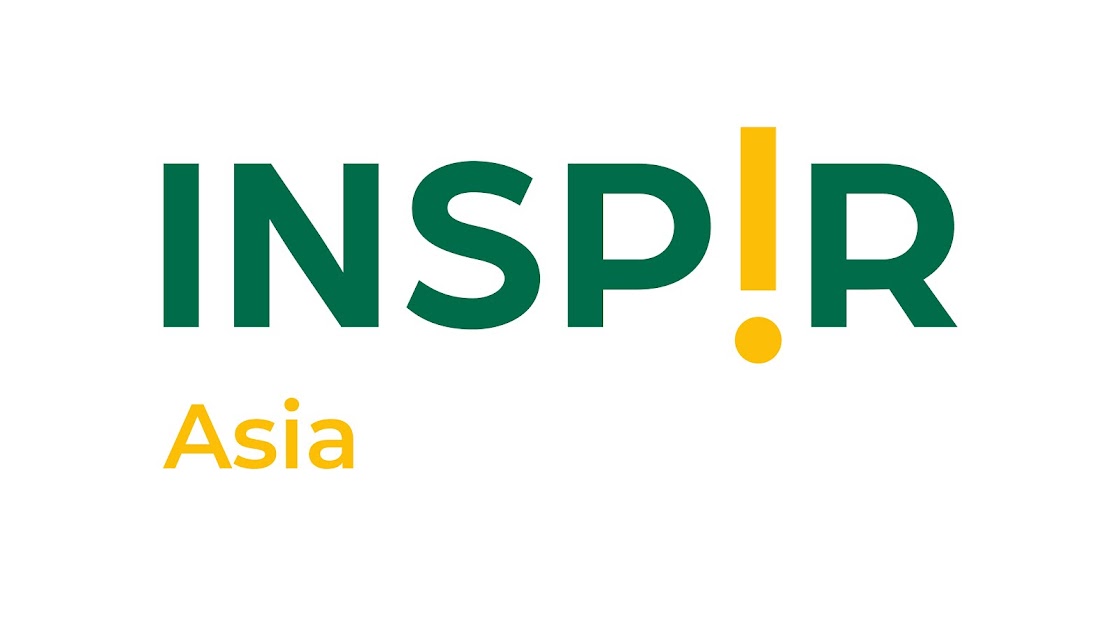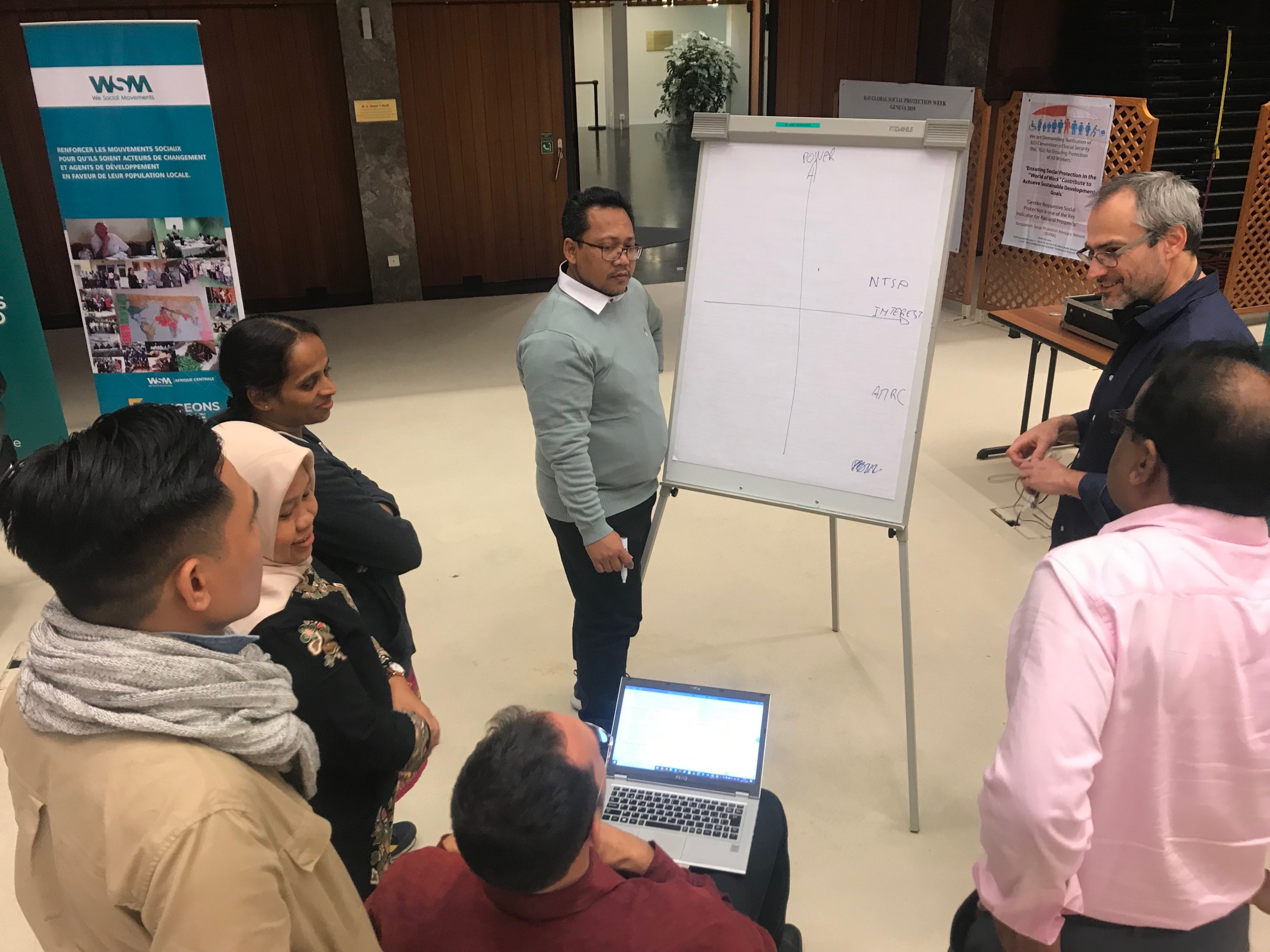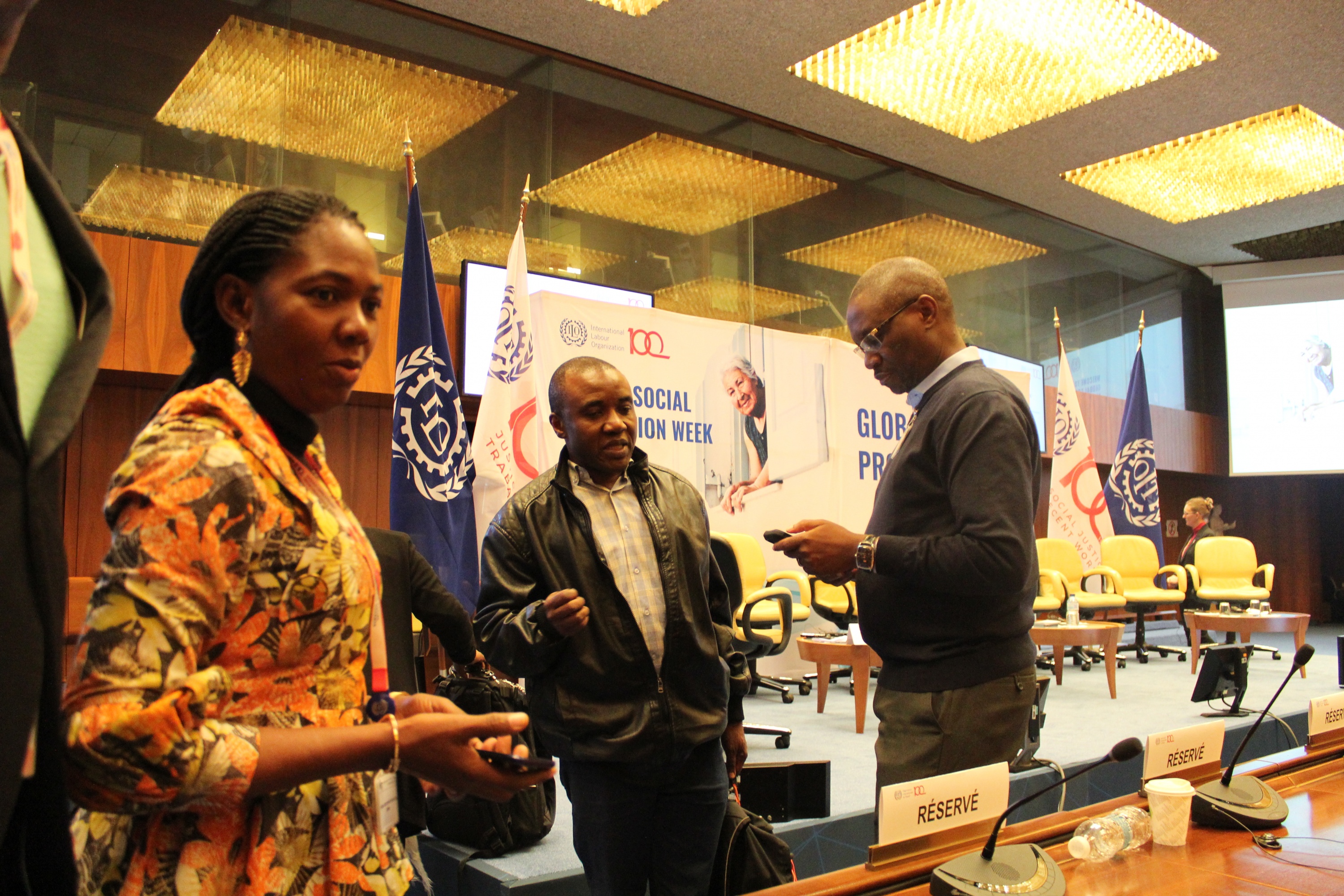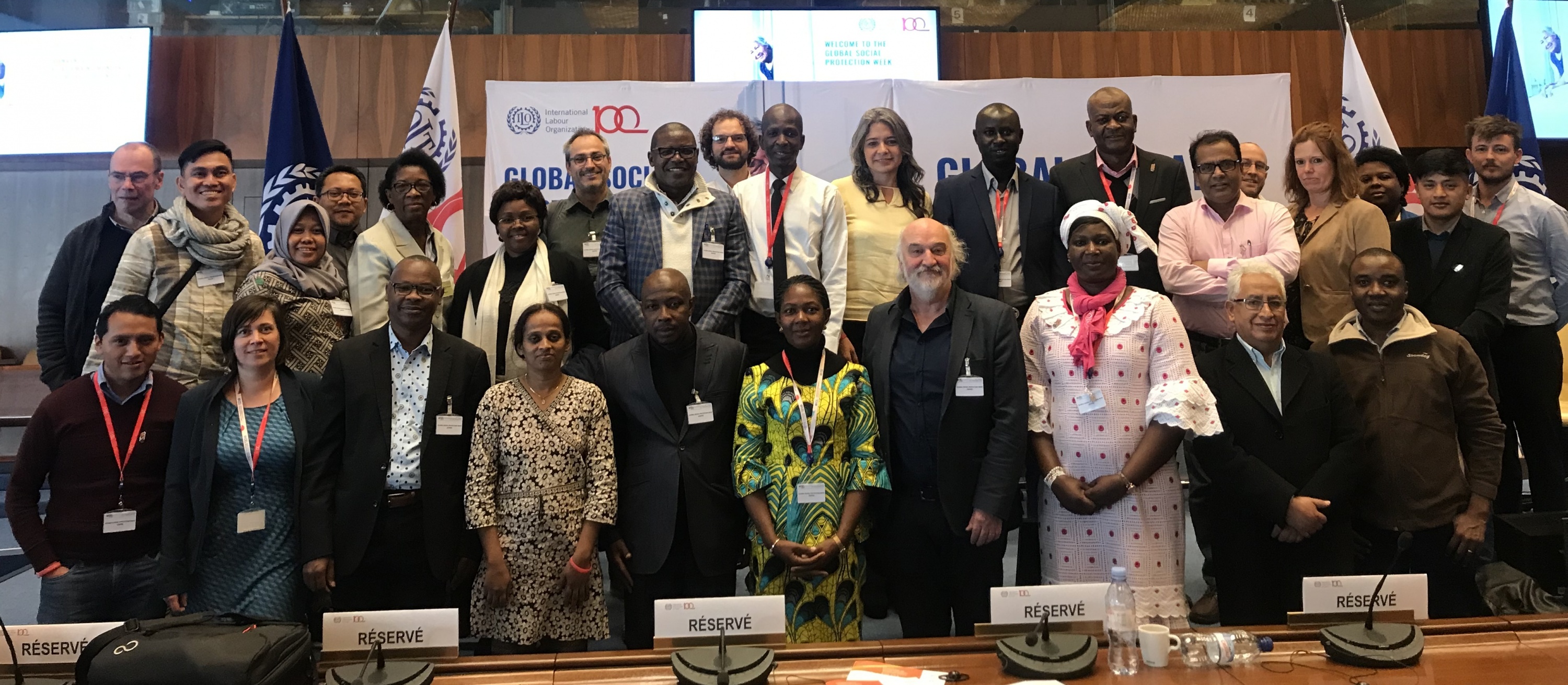As part of its efforts to achieve the decent work agenda and to promote access to social protection, WSM and its partner organizations in Africa, Asia and Latin America have been creating a real network involving different social movements (trade unions, youth organizations, women's movements, social organizations).
Since 2008, this strategy has led to the gradual and progressive development of an international thematic network on the right to social protection. This network is organized first at the national level, in 18 countries, then at continental level, in Africa, Asia and Latin America. And this, through the participation of representatives from each partner organization from the same country, then from the same continent, who meet, work together and reinforce each other during key meetings and sharing. In this way, partner organizations interact, learn from each other and jointly carry out advocacy. The principle of the network is based on a conviction: together, we are stronger!
At the international level, the network partners were already active and collaborated with WSM, ACV-CSC and Christian Mutualities in order to influence different political processes. For many years, they have participated jointly in the International Labor Conferences (ILC), which take place annually, to develop the ILO's normative framework. WSM and its partners have, as such, made a valuable contribution:
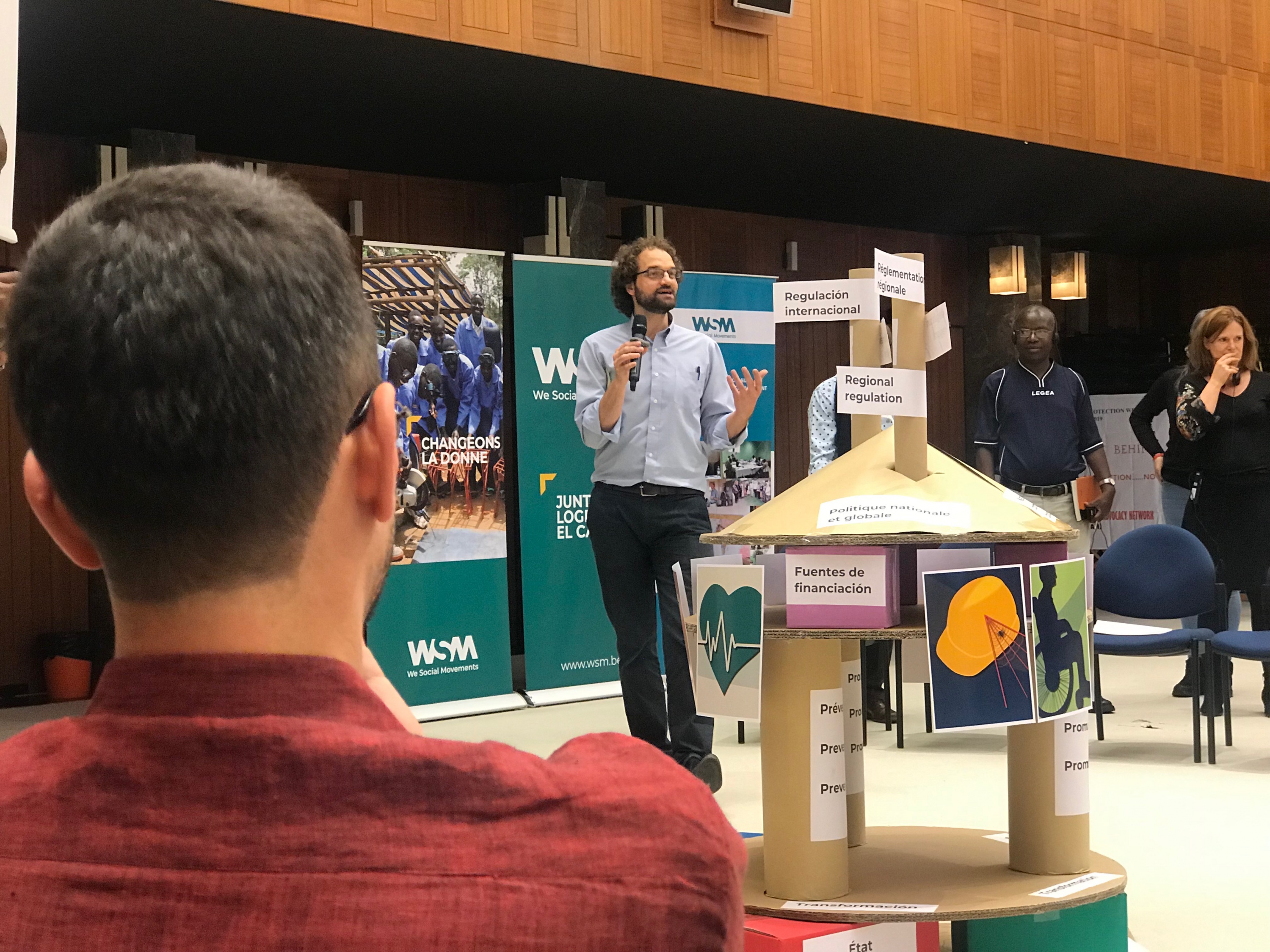 It is within the framework of this dynamic that WSM organized, on 29 and 30 November 2019 in Geneva, the very first meeting of an international thematic network. The delegation composed of 35 partners from Asia, Africa, Latin America and Belgium has thus achieved its objective by reaffirming the desire to work together, globally in solidarity, in favor of the right to social protection. This meeting took place on the sidelines of the ILO's 'Global Social Protection Week' (25-28 November), to which the delegation also actively participated.
It is within the framework of this dynamic that WSM organized, on 29 and 30 November 2019 in Geneva, the very first meeting of an international thematic network. The delegation composed of 35 partners from Asia, Africa, Latin America and Belgium has thus achieved its objective by reaffirming the desire to work together, globally in solidarity, in favor of the right to social protection. This meeting took place on the sidelines of the ILO's 'Global Social Protection Week' (25-28 November), to which the delegation also actively participated.
Like a true founding meeting, this meeting laid the groundwork for an 'International Steering Committee'. The latter will facilitate the organization, between continents, of effective and concerted international actions designed to create a world that offers more protection to its citizens.
Since 2008, this strategy has led to the gradual and progressive development of an international thematic network on the right to social protection. This network is organized first at the national level, in 18 countries, then at continental level, in Africa, Asia and Latin America. And this, through the participation of representatives from each partner organization from the same country, then from the same continent, who meet, work together and reinforce each other during key meetings and sharing. In this way, partner organizations interact, learn from each other and jointly carry out advocacy. The principle of the network is based on a conviction: together, we are stronger!
At the international level, the network partners were already active and collaborated with WSM, ACV-CSC and Christian Mutualities in order to influence different political processes. For many years, they have participated jointly in the International Labor Conferences (ILC), which take place annually, to develop the ILO's normative framework. WSM and its partners have, as such, made a valuable contribution:
- negotiations on decent work for domestic workers (C189 and R201),
- on social protection thresholds (R202),
- on the transition from the informal economy to the formal economy (R204)
- and on workplace violence (C190).
 It is within the framework of this dynamic that WSM organized, on 29 and 30 November 2019 in Geneva, the very first meeting of an international thematic network. The delegation composed of 35 partners from Asia, Africa, Latin America and Belgium has thus achieved its objective by reaffirming the desire to work together, globally in solidarity, in favor of the right to social protection. This meeting took place on the sidelines of the ILO's 'Global Social Protection Week' (25-28 November), to which the delegation also actively participated.
It is within the framework of this dynamic that WSM organized, on 29 and 30 November 2019 in Geneva, the very first meeting of an international thematic network. The delegation composed of 35 partners from Asia, Africa, Latin America and Belgium has thus achieved its objective by reaffirming the desire to work together, globally in solidarity, in favor of the right to social protection. This meeting took place on the sidelines of the ILO's 'Global Social Protection Week' (25-28 November), to which the delegation also actively participated.Like a true founding meeting, this meeting laid the groundwork for an 'International Steering Committee'. The latter will facilitate the organization, between continents, of effective and concerted international actions designed to create a world that offers more protection to its citizens.
